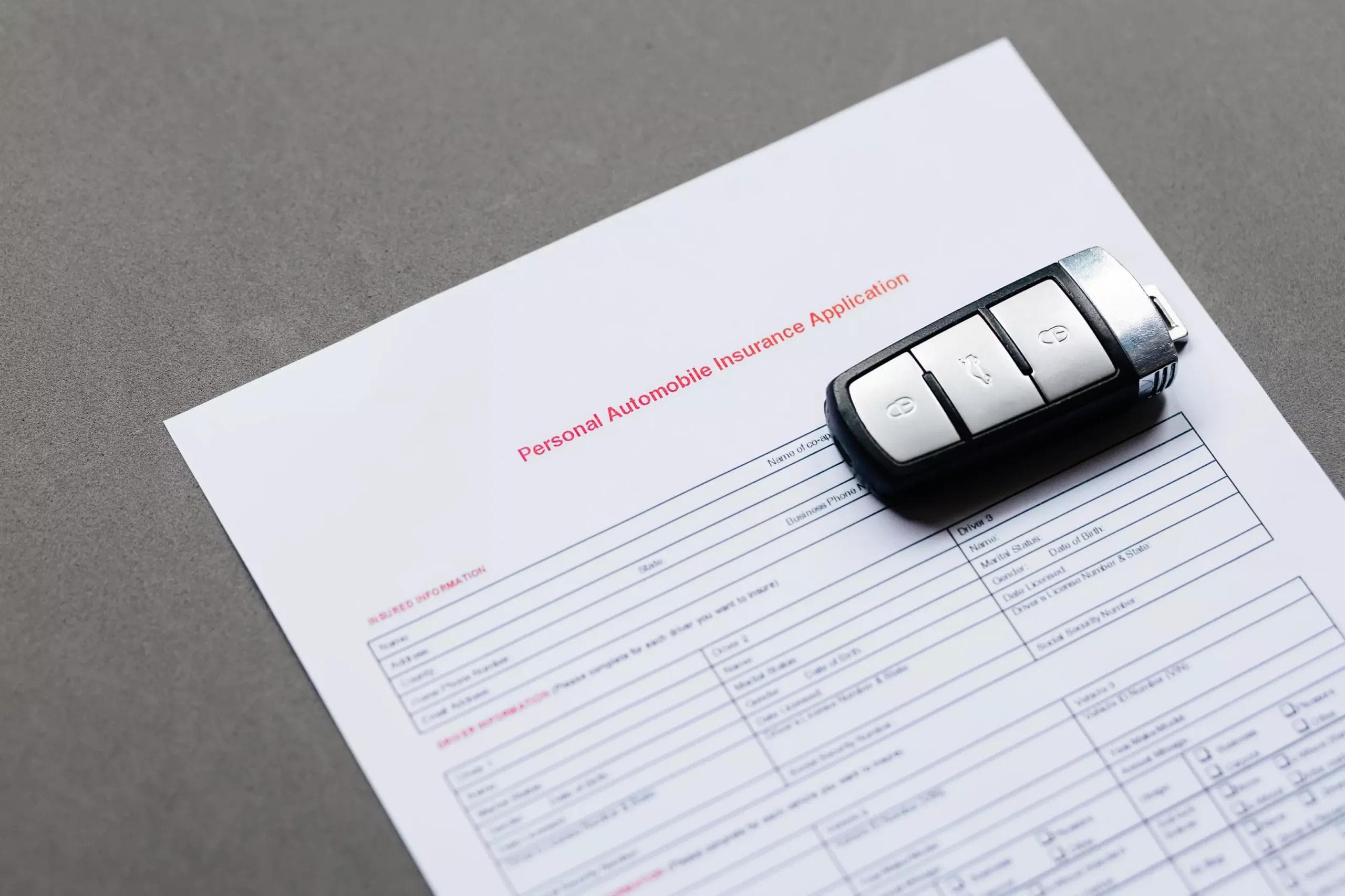
How to Know if an Insurance Company is Acting in Bad Faith
Free ConsultationWhen you’ve been injured in an accident, dealing with an insurance company can feel like navigating a labyrinth. It’s not just the physical and emotional trauma, either. You’re worried about being able to afford your recovery.
This blog is for those of you who might suspect the at-fault driver’s insurance company is not playing fair. Understanding bad faith practices and recognizing the red flags can empower you to take action. We will walk you through the signs of bad faith and equip you with the knowledge to challenge these unscrupulous tactics.
Recognizing Bad Faith: Your Rights Under California Law
When the handshake turns into a cold shoulder, know that California law has your back. Here will show what bad faith looks like, underscore your rights, and assert the legal parameters fencing in those insurers.
Implied Covenant of Good Faith and Fair Dealing
The premise of an implied covenant of good faith and fair dealing is simple: when you enter an insurance contract, there is an unspoken promise that both parties will play fair, giving neither deception nor runaround.
This means insurance companies are legally bound to act with honesty, refrain from deceiving you, and not hamstring the process with red tape. They must handle your claims with the same consideration they would use for their own affairs—without bias, without tricks.
Now, apply this to the gritty reality of personal injury claims. You’ve been in an accident, and filing a claim should not be a second ordeal. The insurance company is expected to investigate your claim thoroughly and quickly, negotiate in good faith, and ultimately pay up what you’re genuinely owed. They are not to hide behind lengthy delays or pitifully undervalue your loss. Why? Because the implied covenant says so.
Statutory Standards for Insurers
The California Insurance Code is not your everyday reading, but it is the rulebook that insurers must abide by. This code dictates the standards insurance companies must uphold when dealing with you, the policyholder. It’s black and white, laid out to ensure fair play in an industry where the scales can seem somewhat tilted.
Under this code, insurance companies have clear mandates:
- They must acknowledge and respond to a claim promptly.
- An insurer has to investigate claims fully and fairly.
- Insurers must not misrepresent facts or policy provisions.
- Insurers can’t offer unreasonably low settlement offers.
Red Flags: When to Suspect Bad Faith
It’s important to recognize red flags early on. What follows is a discussion of common bad faith tactics and examples of what they might look like.
Delay Tactics and Denial Games
A moment’s delay in responding to a claim might be excusable, but when moments become weeks without any real update or progress, the insurer is toeing the line of bad faith. They’re required by law to acknowledge and process your claim within a reasonable time, not leave it on the back burner to simmer away into frustration.
Insurance companies often request multiple layers of paperwork. You might provide everything required initially, like your medical records and expenses. Weeks later, the insurance company requests additional paperwork, some of which you’ve already provided. This is simply their way of delaying the process and burdening you behind a pile of documents.
Now, let’s walk through the scenarios where these tactics come to life:
Scenario One: Carol’s car was sideswiped by a distracted driver. With a clear police report and medical records showing whiplash injuries, she expected a straightforward claims process. The response? A gauntlet of delays. Six weeks went by before she even got an acknowledgment—and then, only after multiple calls. Eight weeks later, no adjuster had been assigned. Ten weeks, and they claimed they hadn’t received her medical records, which she had sent twice. Each delay was a brick in a wall, obstructing her path to compensation.
Scenario Two: David experienced a slip-and-fall at a local store and filed a claim to cover his significant medical expenses. What ensued was a relentless demand for documentation. Initially, he submitted his medical records. Then, he provided detailed descriptions of the incident, even though these details were already included in the initial report. After that, he was asked for proof of income lost due to injury, for which he submitted pay stubs and a letter from his employer. Yet, every few weeks, the insurance company repeated its requests for documents they had already received, each time resetting the process and further challenging David’s patience.
In both cases, the tactics are clear. Delay. Confuse. Repeat. It’s obstruction.
Communication Breakdown
An insurer’s duty is not just to pay out claims but also to communicate clearly and promptly. Lack of timely updates or responses turns an already difficult situation into a quagmire of uncertainty for the injured. If getting a status update from your insurer feels like trying to get a hold of a celebrity—near impossible and always through a third party—something is off.
Communication should be regular, it should be informative, and above all, it should be clear. When insurers become evasive, dodging direct answers or providing non-committal responses, you are not in a dialogue, you’re being played.
Let’s review how these issues manifest through the experiences of two individuals:
Scenario One: Hector sent his claim following a rear-end collision that left him with significant back pain. After the initial submission, he might as well have been sending messages into space for all the good it did. Calls? Unreturned. Emails? Met with auto-responses that promised a reply within 48 hours—a deadline that came and went without word. “We’ll update you as soon as possible,” they said. ‘As soon as possible’ turned into weeks, then months. For Hector, this wasn’t just inconvenient; it was a blockade to his peace of mind and recovery.
Scenario Two: Emily, after enduring a fall due to a defective stairwell, expected empathy, or at least professionalism. What she encountered was evasion. Simple questions like “Has my claim been reviewed?” were met with “We can’t disclose that information at this stage.” Yet the stage never seemed to progress. Each call felt like a looped recording—promises of callbacks that never came.
These scenarios are telling in their commonality—the lack of meaningful exchanges and vagueness. In each case, the tactic is transparent: to frustrate and fatigue claimants into settling for less or abandoning their pursuit entirely.
Lowball Offers and Intimidation Techniques
It’s essential to identify when you’re being undervalued or pressured—a clear sign an insurer may be acting in bad faith. When the compensation on the table seems to insult rather than reflect your suffering, it’s not a misunderstanding—it’s a strategy.
Offers well below reasonable estimates are red flags waving in your face, signaling it’s time to dig in your heels. Quick settlements might sound appealing, but beware: rapid resolutions often come at the cost of adequate recompense.
Consider these hypothetical, yet all too familiar, scenarios:
Scenario One: Grace, recovering from a car accident with mounting medical bills, receives an offer. “We can settle your claim today,” says the insurer, “Just sign here.” The amount? Paltry. It doesn’t even cover her outstanding medical bills, let alone her future ones. Yet, the insurer insists it’s a generous offer.
Scenario Two: Leslie presented her claim, complete with all required documentation, after her car accident. The insurance adjuster responded quickly offering half of the total medical bills, saying it was their standard practice. Leslie knew this was more than a tough negotiation. It was an attempt to intimidate her into accepting less, to make her desperate plight seem overblown.
These scenarios are routine plays in the bad faith handbook. An offer should always be in the ballpark of what’s fair, not a figure scraped from the bottom of the barrel. Insurers banking on your lack of expertise or immediate need for funds deploy these tactics knowingly. They count on your vulnerability, but they don’t expect your resilience.
Investigation Irregularities
An insurer’s duty is to investigate your claim promptly and thoroughly. When corners are cut, and stones are left unturned, you’re seeing bad faith in action—deceptively camouflaged as standard procedure.
Here’s how this might manifest:
Scenario One: Imagine Anna, whose car was T-boned at an intersection. The insurance company responded with such speed to deny her claim, one would think they had time travel capabilities. Their reason? A supposed lack of evidence that Anna had the right-of-way. However, the hasty denial overlooked crucial witness statements corroborating Anna’s account, all because the adjuster did not spend the requisite time to investigate.
Scenario Two: Then there’s Michael, a pedestrian struck by a distracted driver. Despite providing a mound of medical records and proof of the driver’s negligence, the insurer’s response seemed like a reply to someone else’s claim. They ignored Michael’s submitted evidence, focusing instead on minor discrepancies in his statements—clearly scrabbling for reasons to reduce the payout.
These scenarios expose a troubling trend of insurers doing the bare minimum—or less. An investigation must be comprehensive, leaving no relevant fact unexamined. Insurers have a responsibility to look at every angle, scrutinizing the available evidence.
How to Fight Back Against Bad Faith Tactics
Document everything. Every phone call, every email, every snail-mail correspondence with the insurance company should be meticulously recorded. The date, the time, the name of the person you spoke with, and a brief summary of the conversation need to be noted.
Keep a log. Safeguard all the crash reports, medical records, and repair estimates. These are the puzzle pieces that create a clear picture of fair compensation, so treat them as precious commodities.
But at some point, you may need reinforcements. Understand that bad faith insurance practices are formidable opponents that require more than just a strong will; they demand specialized legal know-how. Enter your attorney, not just as your advocate, but as your strategist, your negotiator—your champion.
Lawyers are fluent in the language of litigation, a dialect that insurance companies comprehend all too well. A lawyer signals you mean business and you know your rights. It underscores that any attempts at low-balling or stonewalling will be met with staunch resistance. And when necessary, lawyers don’t just threaten a lawsuit—they follow through, with all the procedural and evidentiary muscle to back it up.
Here’s what a lawyer could do for you:
- Analysis: Your lawyer will dissect your policy and the insurer’s actions. They spot inconsistencies, identify breaches, and can sniff out bad faith like a bloodhound.
- Negotiation: With deft negotiation skills, lawyers don’t ask for what is fair—they demand it. They are articulators of your plight, driving home the point that you’re not a file number but a human being.
- Litigation: Should the insurers remain obstinate, your lawyer is ready to escalate. They may file a lawsuit, argue motions, and zealously represent you in court.
- Settlement: Often, the mere presence of legal representation precipitates a more reasonable settlement offer. Your lawyer evaluates these offers with a critical eye, ensuring it meets your needs—not just now, but for the future.
- Peace of Mind: With a lawyer at the helm, you can focus on healing, secure in the knowledge that someone is out there, fighting tooth and nail for your rightful reparation.
If you’re facing resistance from the at-fault driver’s insurance company, it’s essential to remember you are not alone. At PARRIS Law Firm, we stand as your advocate, ready to ensure that insurance companies honor their duty. If any of the situations highlighted here echoes your experience, reach out. Contact us for a consultation and let’s turn the tide together.





